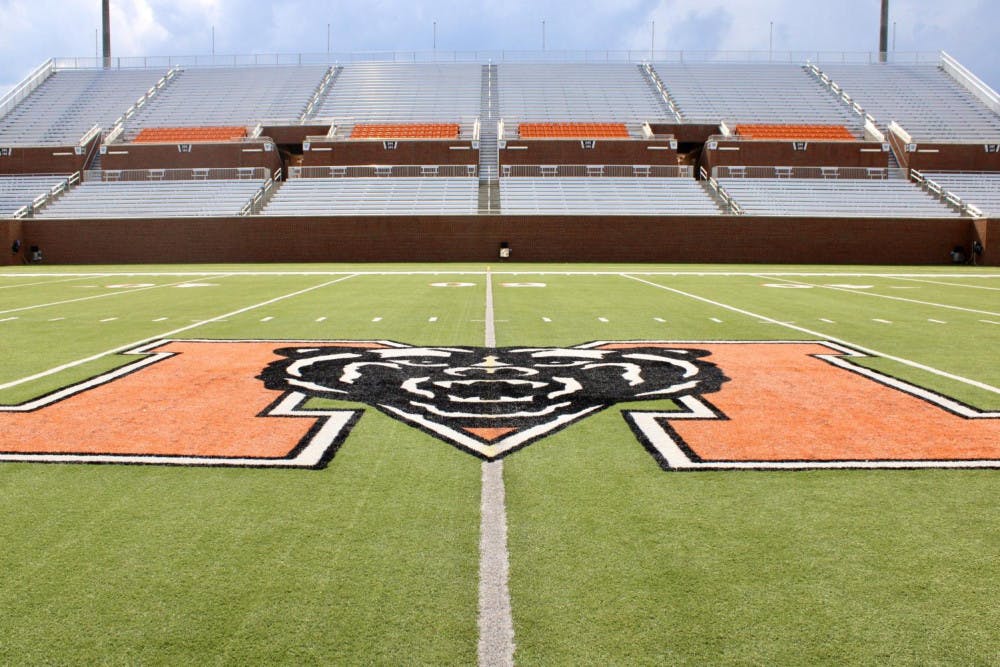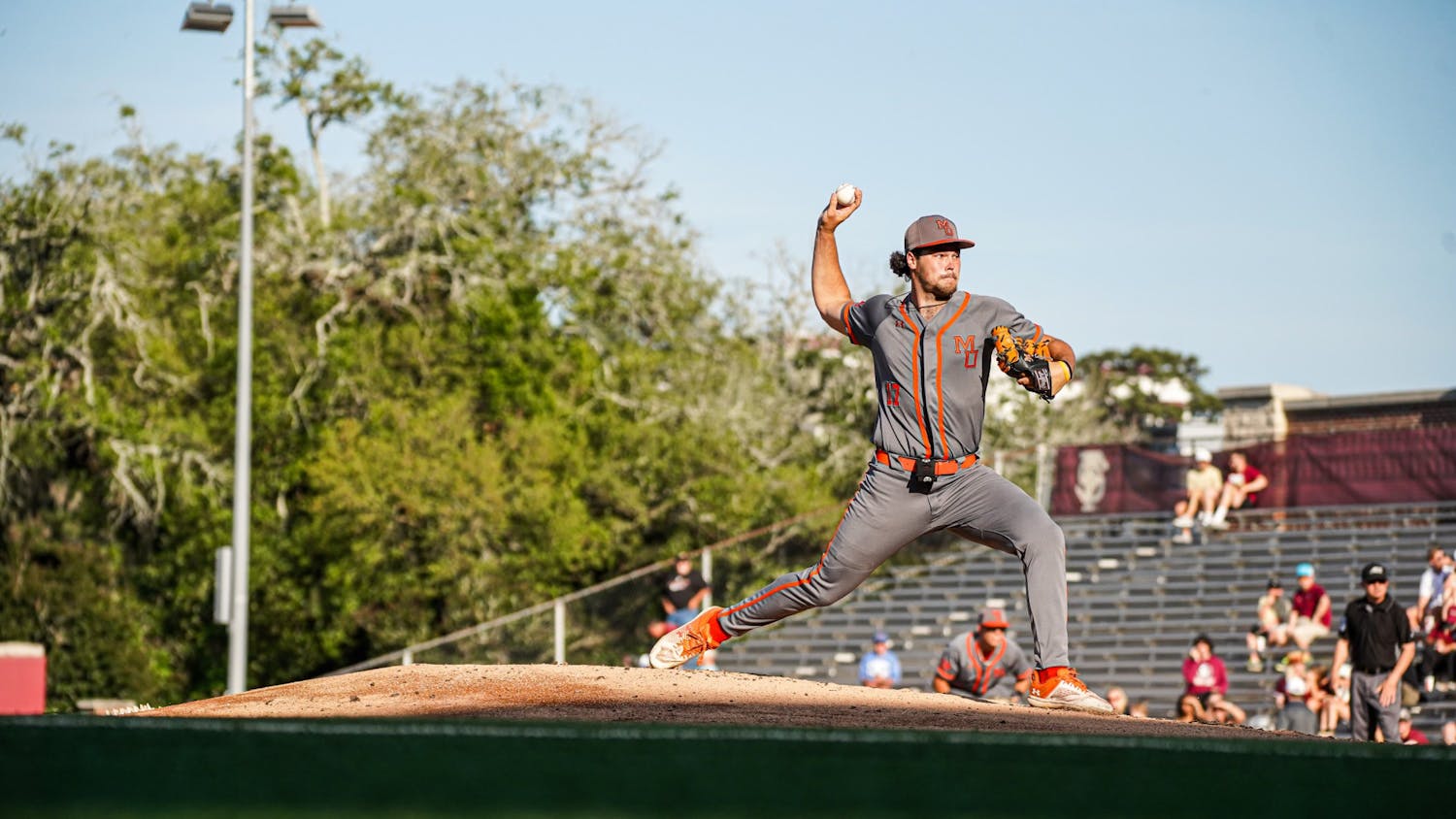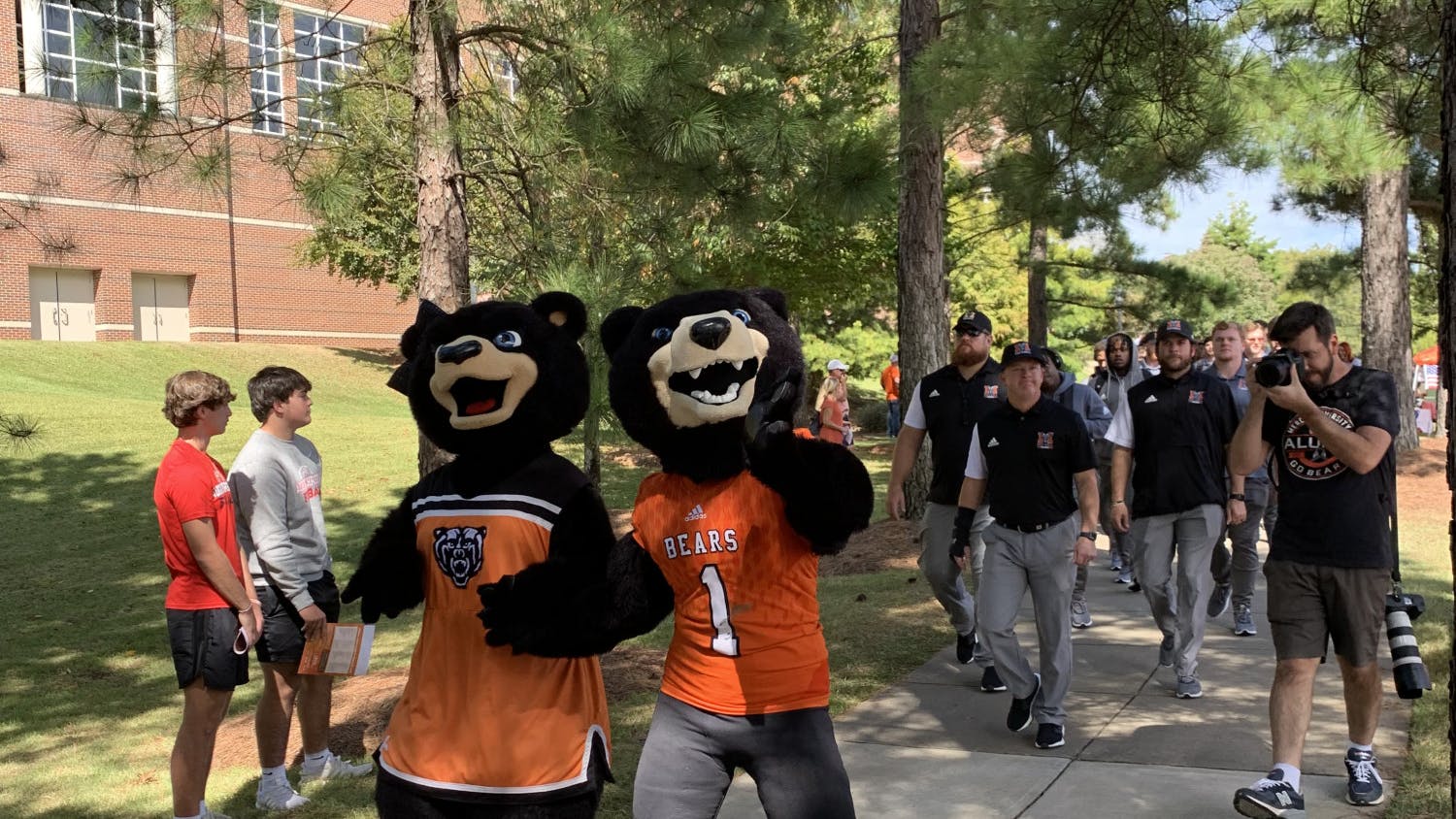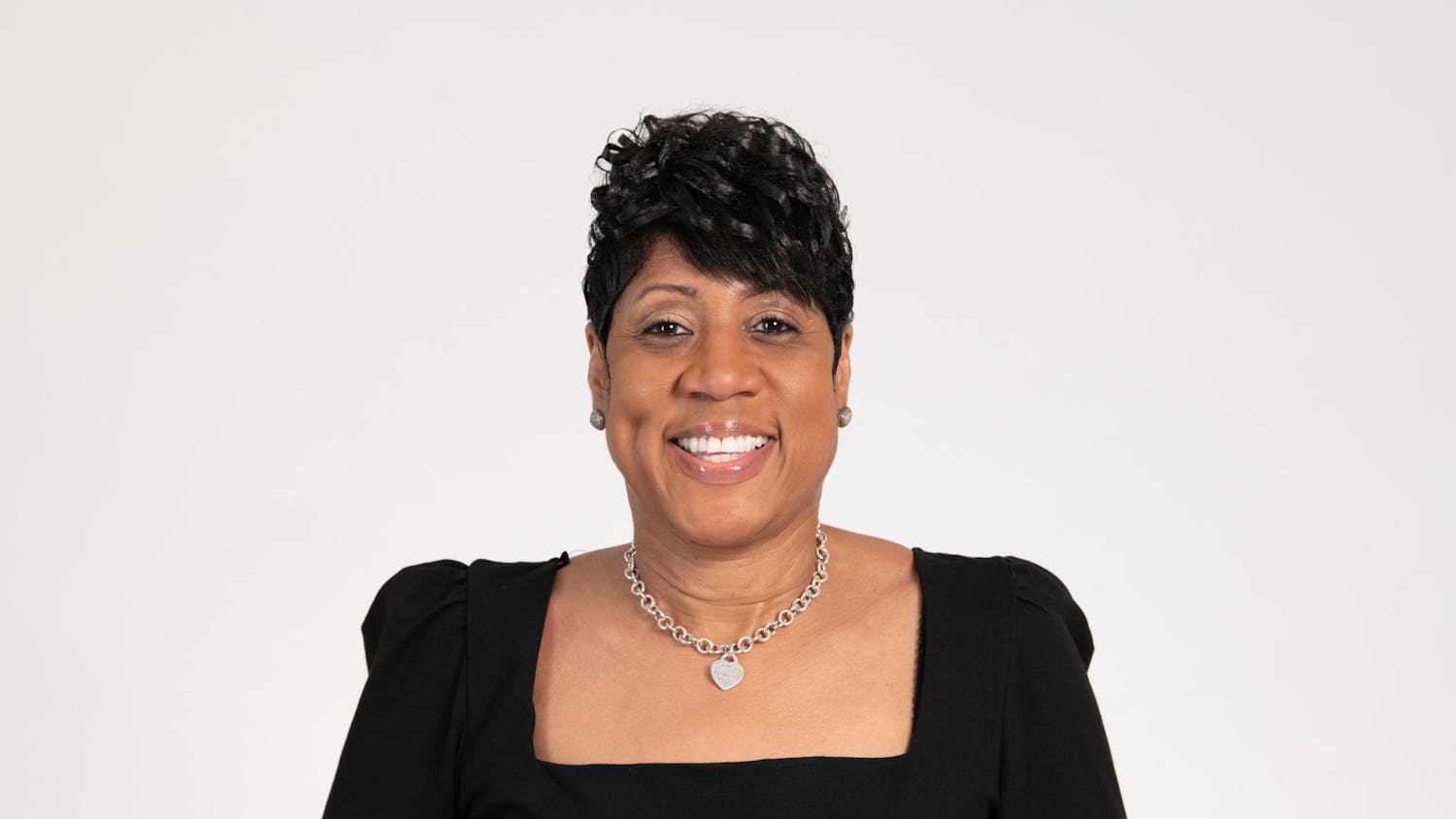College football is on the brink of cancellation in 2020 due to COVID-19, and the debate surrounding it is a complex one.
While some players are in vocal support of playing, the threat of COVID-19 remains as important as ever when tackling this difficult season. Beyond the immediate concerns of 2020, however, the virus’s impact brings to light even more questions about the sport’s long-term future in a variety of ways.
What’s at stake this fall
The Pac 12, Big 10 and Southern conferences — the latter of which includes Mercer — have all elected to shut down their Fall 2020 athletic programs. The ACC, SEC and other major conferences in NCAA sports have not yet made decisions.
Many college football stars have protested the decision not to play.
“People are just as much, if not more at risk, if we don’t play. Players will all be sent home to their own communities where social distancing is highly unlikely and medical care and expenses will be placed on the families if they were to contract (COVID-19)” Clemson star quarterback Trevor Lawrence wrote on Twitter. “Football is a safe haven for so many people.”
Other players have supported Lawrence on Twitter, creating the hashtag #WeWantToPlay and advocating for a renewed football season with better safety protocols.
This protest from players begs the question, though: is it actually safer for these players to participate in the season at their universities than it is for them to return home? Ryan Marino, a medical toxicologist and emergency physician, says that it isn’t likely.
“Football is a contact sport that involves a lot of closed quarters and activities where you’re generating more of these aerosols,” Marino told Forbes in an interview on COVID-19 and college football. Aerosols are floating respiratory droplets that contain live viruses. There is evidence that COVID-19 may be transmitted via aerosols, and these droplets have been collected up to 16 feet away from patients, according to The New York Times.
“We know exercise is something that increases the spread,” Marino said. “So that is probably the big concern, and why that statement isn’t true.”
Marino isn’t the only one that questions the safety of college football. Numerous players across the nation have opted out of this season due to coronavirus concerns, some instead deciding to begin their preparations for the 2021 NFL Draft in lieu of a season.
Concerns about the safety of athletics were also validated when a group of men’s soccer players at the University of Louisville hosted a party that resulted in a coronavirus outbreak on campus, according to USA Today. The party led to 29 COVID-19 cases within the Louisville Athletic Department alone.
That number mirrors the count of positive tests from within Mercer’s football program alone after participating in summer workouts. Twenty-nine student-athletes at Mercer tested positive between July 31 and Aug. 3, according to a press release from Mercer University.
The future of football?
But how will universities that depend on revenue from athletics survive if the fall 2020 season doesn’t occur?
A program like Ohio State University’s can rake in tens of millions per year, as OSU football garnered nearly $60 million of revenue from ticket sales alone during the 2019 season according to Columbus Business Journals. For a program like Ohio State’s, there is less risk in losing this revenue, but for smaller mid-major schools that have prominent athletic programs — for instance, the University of Memphis or the University of Cincinnati — this could lead to serious financial trouble.
On the topic of revenue, pandemic restrictions also remind fans of a question that has been persistent for years in college football: how are unpaid athletes to react to the cancellation of a season?
Players are naturally concerned for their own safety, and COVID-19 simply adds to a lengthy list of injuries and risks players take by participating in NCAA football. These risks are ones that players do not get paid for taking, and yet, the NCAA has issued almost no rulings concerning COVID-19 regulations or testing. The Washington Post reports that some schools are testing for COVID-19 more often than others, and that this could potentially lead to unsafe circumstances within college football.
“It just seems like everyone’s freelancing,” one Notre Dame player’s mother told the Washington Post. “The NCAA has rules and guidelines for everything under the sun. . . . How are they not making any rules for this?”
As players, coaches and school administrators across the country assess the situation and attempt to make important decisions, only time will tell how the future of college football will develop.
Micah Johnston ‘22 is a journalism and media studies double major who has written for The Cluster since his freshman year at Mercer. He has written on and reported for Georgia Public Broadcasting, The Macon Telegraph and The Macon Newsroom on a variety of topics. He received the Center for Collaborative Journalism’s Junior Honors Award for the 2020-2021 academic year. Micah’s other interests include obsessively following Braves and Mariners baseball, constantly listening to all kinds of music and probably eating junk food.





